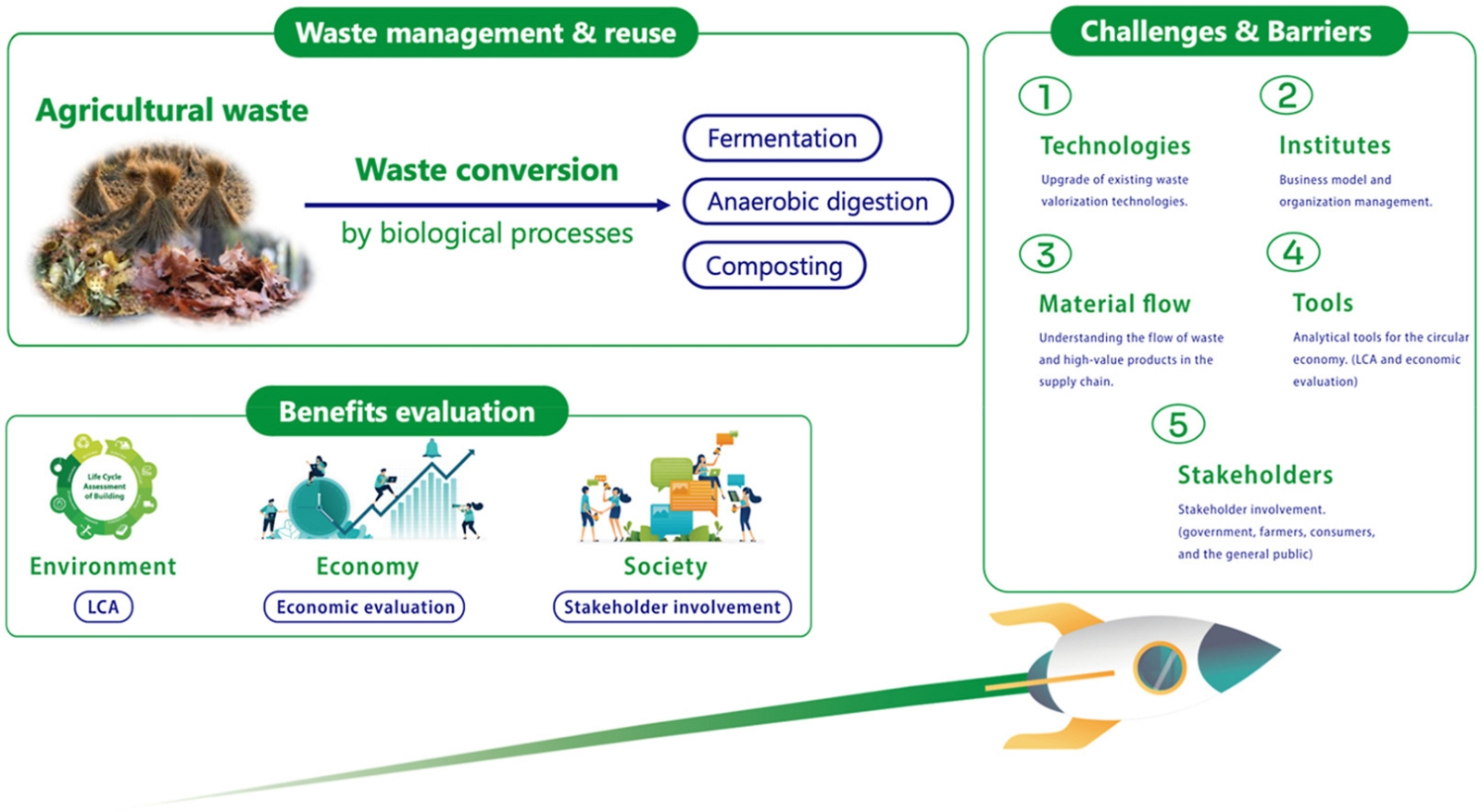August 20, 2023 | Journal of Cleaner Production |
Introduction: National Taiwan University conducted a comprehensive study focusing on the agricultural sector's shift from linear resource consumption to a circular economy. The research identifies key challenges and barriers in four critical areas: conversion technology and research, business models and material flow within the supply chain, analytical tools for the circular economy, and stakeholder involvement.
Key Findings: The study highlights anaerobic digestion (AD) as a commonly used technology for converting organic waste into valuable resources. AD's success hinges on factors like feedstock properties and operating conditions, which directly affect the quality and quantity of biogas and digestate produced. Other processes, including pretreatment, pyrolysis, and hydrothermal liquefaction, show potential for enhancing biogas production and generating valuable byproducts. However, challenges persist in terms of feedstock composition, high operating temperatures, and the need for appropriate infrastructure.
Efficient business models are identified as essential for a successful circular economy in agriculture. Complex business models, financial uncertainties, and stakeholder involvement pose challenges. The establishment of a sustainable supply chain, ensuring the synchronization of feedstock and byproduct availability with demand, is crucial. Suitable infrastructure, management expertise, and continuous training also play a pivotal role.
Analytical tools, including life cycle assessment (LCA) and economic evaluation, are crucial for assessing the feasibility of circular economy practices. However, challenges include limited data availability and the need to account for feedstock characteristics.
Stakeholder involvement, from governments and farmers to consumers, is identified as another key factor in achieving a successful circular economy in agriculture. Government policies and regulations can incentivize the use of waste-derived products, while farmers' willingness to adopt circular practices depends on their location, legislative rules, and available incentives.
Conclusion: The study underscores that the transition to a circular economy in agriculture requires collaborative efforts, innovative technologies, and effective communication among stakeholders. Integrating conversion technologies into existing infrastructure, designing sustainable supply chains, and developing appropriate analytical tools are crucial steps toward achieving a successful circular economy in the agricultural sector.
Read more: From waste to value: Addressing the relevance of waste recovery to agricultural sector in line with circular economy
Graphic abstract






